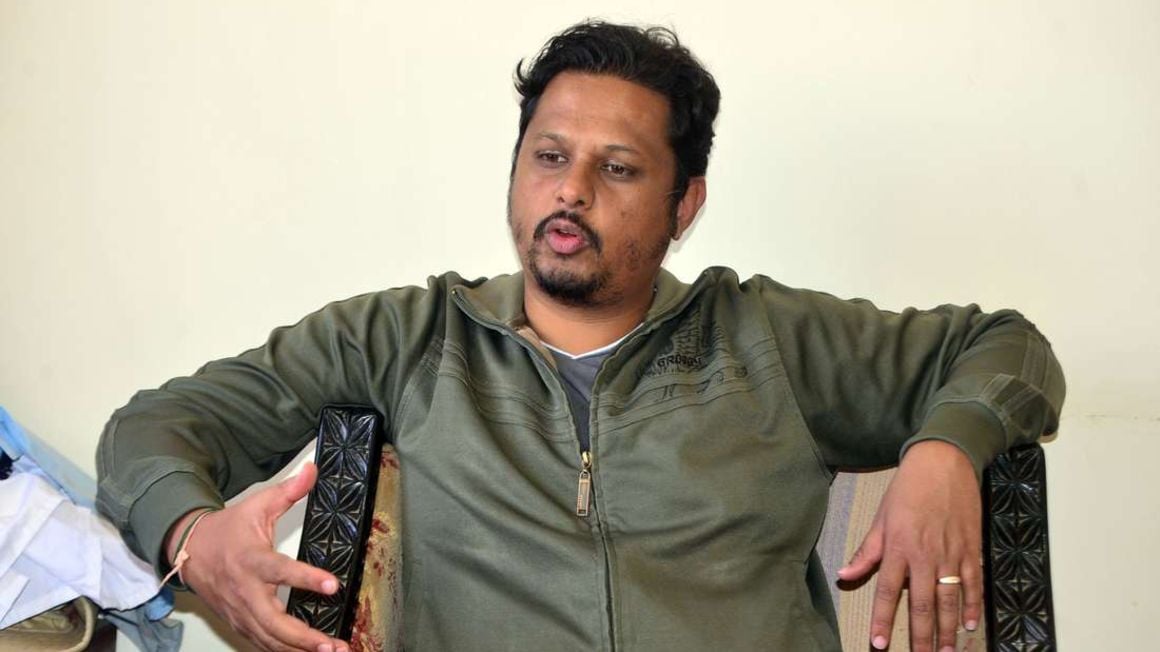
Alpha Knits Limited general manager Sagar Shah in Ruiru Kiambu County on October 4, 2020. PHOTO | SALATON NJAU | NMG
Summary
- In an interview, Mr Shah said his main goal will be to digitise operations and via the Buy Kenyan Build Kenya initiative, increase branding of various products for local and export sales.
- Mr Shah, who is the firm’s acting general manager said customisation builds loyalty, attracting round-the-year business as opposed to Kenya’s traditional school-wear business that has a cycle largely pegged on the first three months of the year.
Sagar Shah studied and lived in UK for years until the need for generational business transition and modernisation of Ruiru’s textiles factory, Alpha Knit factory beckoned.
The firm’s founder Madhu Shah sought his son’s hand after acquiring the shares held by his two partners who left last year, ushering in the herculean task of charting a new path for the 42-year old business that sells its products in Kenya,Uganda,Tanzania,Ethiopia, Malawi and as far as DR Congo and Rwanda.
In an interview, Mr Shah said his main goal will be to digitise operations and via the Buy Kenyan Build Kenya initiative, increase branding of various products for local and export sales.
“Machines used in cloth and sweater as well as socks-making are as good as any in Europe, Asia or America which defeats all intents of sourcing products for sale in Kenya from foreign factories. Kenya must affirm its commitment to champion local manufacturing for higher revenues, more jobs as well as attract further investments,” he said.
Mr Shah, who is the firm’s acting general manager said customisation builds loyalty, attracting round-the-year business as opposed to Kenya’s traditional school-wear business that has a cycle largely pegged on the first three months of the year.
“We are happy with the anti-counterfeit war that has salvaged the market for some of our revered products where unscrupulous traders outsource manufacturing of substandard products for onward sales in our established markets,” he said.
In 1982, the firm expanded its operations to include socks knitting, baby blankets and shawls, work-wear and later on introduced branding and embroidery which created a niche market for their clients that were now sourcing locally branded products.
It then shifted to Ruiru when they invested heavily in industrial textiles machines enabling them to meet demand for various products where at its peak, Alpha Knits employed 600 workers, But Covid-19 pandemic adversely affected its operations with demand falling as markets and supply chains got disrupted.
“We had ventured into export business for work-wear which we still do for various foreign companies. Our branded Kasuku Kikoy is a must have for the diaspora Kenya community among other buyers in Europe and the US which are our major clients,” he said.
Protecting local manufacturers, Mr Shah said had created a new demand for their products with county and national government entities as well as quasi-government agencies forcing traders to tender and source various items locally.
He said while they never won the tenders directly, traders who used their samples to bid for the public tenders signed commitment notes that ensured them of new business once they win the tenders for production of various personal protective wear(PPE) for use in public hospitals.
Cheap imports
“While most imports are the single use PPEs, we promote the washable PPEs where users can machine wash the PPEs from shoe-covers, overalls, caps as well as face masks,” he noted.
Mr Shah added that Kenya must scrutinise secondhand imports that at times are used to sneak in new clothes thereby denying Kenya the much needed revenue which results in flooding the market with cheap imports from other markets.
“We produce products that are backed by standards and we pay duty on every product we sell but the cheap imports are substandard and come in duty-free.Market protection means more business for us, more jobs driven by demand and that is good for Kenya,” he added




No comments :
Post a Comment